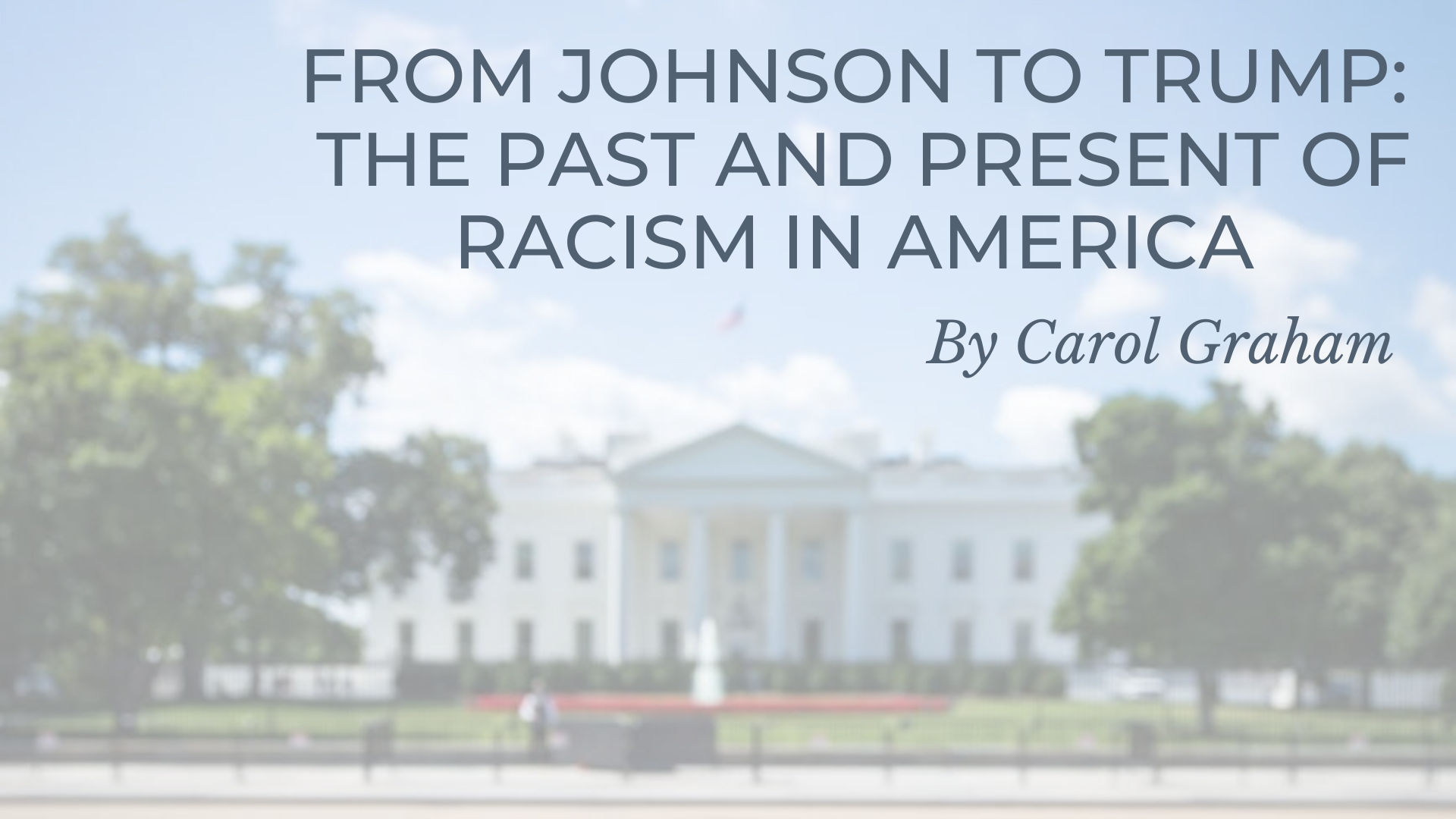From Johnson to Trump – the past and present of racism in America

By Carol Graham
In a significant and difficult year in our history, the President has declared the primacy of his office over Congress. For Black Americans this president has been a disaster. His public support for racists has increased racist attacks. Republicans and Democrats are at loggerheads and Congress has proceeded to impeachment. If this sounds familiar it should, but the year is 1865 and the president is not Donald Trump, it is Andrew Johnson.
In the absence of Congress, during the 1865 summer recess Andrew Johnson implemented ‘presidential reconstruction.’ Instead of providing former slaves with rights protecting their lives, liberty and property, Johnson restored the civil war’s status quo ante. Powerful figures in the confederacy – plantation owners, generals and members of the confederate government – were granted free rein in their states in exchange for a simple oath of loyalty. As Congress was not in session, it was powerless to prevent this.
This ‘reconstruction’ was accompanied by massive violent oppression. Black people were chased off property they owned. Murder, particularly of black veterans, and rape was widespread. In 1866 Memphis and New Orleans witnessed massacres which later became the subject of congressional hearings. Just one example of many presidents who have not considered black lives worth protecting.
Trump’s overt racism has also legitimised violence and discrimination across our country. Trump’s offensive remarks and his support for known racists have resulted in a marked increase in verbal and physical attacks against black people and white supporters. Threats against Representatives Pressley, Ocasio-Cortez, Tlaib and Omar increased following Trump tweets that they were not American and should return to their countries. In 2019 ABC news discovered court and police reports in which perpetrators of threats and violence ‘invoked Trump’ in 36 cases.
But Trump’s experience in America is different from that of President Johnson. In 1865 black people were not yet citizens. The idea of a black person employeeing or representing whites would have seemed as incredible to most black people after the civil war as it was to whites.
This is not Donald’s Trump reality. Much as he would like to wish it away, for much of America it is not only normal to work in multi-racial offices with black people at every level, but actively sought after. Visit the National Museum of African American History and you will see families of all colors. I know a white couple who named their daughter Harriet after Harriet Tubman because they felt that too few whites honoured famous Black Americans. Twitter, the President’s preferred mode of communications, is full of stories of inter-racial kindness like the young black men who kept seeing an older white widow sitting alone at a diner and invited her to join their table.
Andrew Johnson-era racists feared retribution from former slaves as they feared the unknown. Trump supporters attracted to his racism are similarly being fed a White House diet of fear – fear of change, fear of expertise, fear of losing privilege. They fear that, if they open their eyes (and ears) to all of black America, what they see will invalidate the justifications for their racism.
The reason that racists hate being called racist so much is that they know they have already lost the moral argument. In their desire to take pride in their “traditional way of life”, they wilfully ignore the fact that such traditions are built on a legacy of slavery. It is no accident that black Americans are still fighting for our histories to be recognised.
In Black History Month, African Americans celebrate how far we have come. The Trump presidency has made us sadly aware of how far many of our fellow Americans have yet to go to understand, let alone embrace American values of liberty, equality and tolerance.
This Black History Month let us all pledge to give President Trump something else in common with Andrew Johnson – a one-term presidency.



